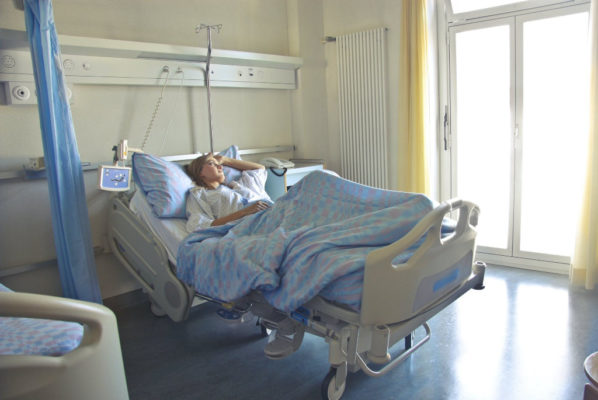COVID-19 put the spotlight on people at risk of hospitalisation and death if infected with SARS-CoV-2. This includes older people and those with chronic diseases which are common across the population, including asthma, diabetes and cardiovascular disease.
Now, as the intense focus on COVID-19 begins to fade, attention is turning to the role of routine immunisations against influenza and pneumococcal disease in protecting at-risk individuals.
A new report by the The Coalition for Life-course Immunisation (CLCI) and the International Longevity Centre-UK (ILC), Hitting new heights, calls for more action to ensure people at greater risk have better information and access to vaccination. It highlights a range of barriers to improving vaccine uptake in people of all ages who are living with chronic conditions.

Across Europe, up to 72,000 people die from the flu each year, and the mortality rate is ten times higher for those in a clinical risk group compared to people in the general population.
More than a decade has passed since EU countries committed to achieving 75% flu vaccine uptake in those with underlying health conditions. However, despite 1 in 4 Europeans living with at least two or more chronic conditions, just 45% of this group take up their annual flu jab. Pneumococcal vaccination coverage is even lower at around 20-30%.
‘While we have seen relatively high COVID-19 vaccine uptake across Europe, huge gaps remain when it comes to Europeans with chronic conditions and flu and pneumococcal vaccine take-up,’ Patrick Swain, Research and Projects Officer at ILC and report author.
‘Vaccines offer everyone a fighting chance, but they are even more crucial for individuals with health conditions that hinder the body’s ability to fight disease. With COVID-19 at the forefront of people’s minds, we need to harness the renewed enthusiasm for vaccination to make the case for other immunisations.’
Key barrier to better uptake include:
- Misinformation – fake news can damage vaccine confidence.
- A lack of targeted communication – without tailored information, some chronic condition groups may feel disengaged with vaccination.
- A lack of spending – across much of Europe, less than 0.5% of health budgets are spent on vaccination.
- Accessibility barriers – economic aspects like out-of-pocket vaccine costs make it difficult for some people to get vaccinated.
- Complacency – some people with chronic conditions don’t deem vaccination necessary because they don’t regard themselves as being at a high enough risk.

At a webinar launching the report, stakeholders called for governments to make vaccinations free at the point of use and to deliver better and more tailored vaccination information for risk groups. This should be achieved by working with local healthcare professionals, patient organisations and charities to co-design messaging, it was argued.
‘Millions of people across Europe are living with chronic conditions which put them at higher risk of severe illness from vaccine-preventable diseases,’ Daphné Holt, Chair of CLCI who hosted the event. ‘We know that vaccination is not just for children or older adults: at-risk people should also get vaccinated throughout their lives to better protect themselves.’
While there is some optimism that COVID-19 is an opportunity to raise awareness of the value of routine vaccination, Mariano Votta of the Active Citizenship Network noted that immunisation programmes had taken a hit during the pandemic. ‘We mustn’t forget that vaccination centres were closed and programmes were suspended in the early phases of the pandemic,’ he said. ‘They operated on reduced hours and staffing which sent the totally wrong message that routine vaccination was not essential.’
Cyrus Engerer, a member of the European Parliament committee responsible for health, said ‘public trust in science and health authorities’ are the key to better vaccine uptake. He supported the report’s call for harmonised vaccine schedules across Europe ‒ an issue which can prove controversial at EU level given that national governments are responsible for health policy. ‘Vaccines are a basic human right and we should do more to increase vaccination,’ he said.

The need to connect patient advocates with high-quality information that addresses issues raised by patients was highlighted by several speakers. Francois Houyez of the European Organisation for Rare Diseases (EURORDIS) said some people with health conditions are very cautious about vaccination and need up to date safety data from trusted sources. He cited the example of an online community for people with chronic kidney diseases which helps to answer patients’ questions in real time. ‘These challenges can be addressed when patient and medical communities are well organised and patients’ concerns are addressed rapidly,’ he said.
This call for tailored, patient-specific messages on vaccines was echoed by Susanna Palkonen, European Federation of Allergy and Airways Diseases Patients’ Associations. ‘Access to vaccination, and targeted information, are critical factors to improving vaccination uptake among people with allergy, asthma and COPD,’ she said. ‘It should be part of the preventative measures taken every year and part of their free regular care.’ She added that patient voices should be sought so that barriers to uptake could be better understood.

New digital tools, including artificial intelligence could be used to offer personalised decision aids, according to Sibilia Quilici, Vaccines Europe (which sponsors Vaccines Today). ‘This already exists in France and could be optimised and made available on a pan-European basis,’ she said. ‘For example, the system can tell someone with kidney failure that they are at a four-fold risk of pneumococcal infection so they should consider vaccination.’
A number of speakers also called for more spending on disease prevention and better data collection on vaccine uptake across Europe, just as the European Centre for Disease Prevention & Control (ECDC) has done through its COVID-19 vaccine tracker dashboard.
The legacy of the pandemic may be continued awareness of the need to protect vulnerable groups against infectious diseases. Participants in the launch of the report agreed that engaging with patient communities will be essential to understanding how people with chronic diseases can be brought on board with routine life-course vaccination.
Read the full Hitting New Heights report



